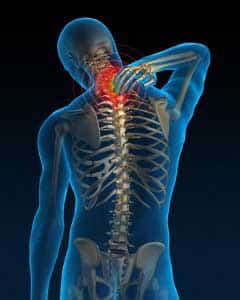
The spinal column also serves to protect delicate neural structures such as the spinal cord and nerve roots. The spinal cord is essentially an extension of the brain and even the slightest injury can result in irreversible damage that may cause weakness, sensory loss, or paralysis.
The spinal column also contains vital blood vessels that supply oxygen to the spinal cord. Injury to these blood vessels may also result in irreversible spinal cord damage.
When degenerative changes occur in the spinal column, compression of the spinal cord or nerve roots by bony elements can occur. Similarly, herniated discs may also compress the spinal cord and result in significant nerve damage.
Neurosurgeons specialize in treating conditions that affect the nervous system including the brain and spinal cord.
Such conditions may involve tumors, trauma, vascular injury, or degenerative changes that result in compression of critical neural structures. Neurosurgery residency is typically 7 to 8 years and approximately 50% of training is dedicated to spinal surgery. Spinal fellowships may be pursued in addition to residency for purposes of obtaining intense specialized training dedicated to spinal surgery. These 1-2 year fellowships are largely elective for neurosurgeons since spinal surgery is part of their core residency training.
Orthopedic surgeons specialize in treating conditions that affect the musculoskeletal system. Orthopedic residency is typically 5 years and time dedicated to spinal surgery often varies. Therefore most orthopedic spine surgeons pursue spine fellowships in an effort to increase their proficiency in spinal surgery after residency.
Spinal surgery is a delicate endeavor, largely due to the potential for the spinal cord to sustain irreversible damage. The ultimate goal of spinal surgery often involves the preservation or restoration of nervous function which is the main focus in neurosurgery training. In addition, stabilizing the spinal column with instrumentation may be required which is commonly performed by both neurosurgeons and orthopedic surgeons.
There are almost 10 times more orthopedic surgeons than neurosurgeons currently practicing in the US which may explain why a significant number of spinal surgeries are performed by orthopedic surgeons. Ultimately, both orthopedic surgeons and neurosurgeons have the potential to develop into excellent spinal surgeons. However, unexpected injury to the neural structures during surgery invariably requires the management and expertise of a neurosurgeon. Therefore, access to a neurosurgeon is highly recommended for any patient undergoing complex or minimally invasive spinal surgery.
Neurosurgeon in the Greater Princeton Area
Do you have questions about picking a neurosurgeon spinal surgery? Contact us today to schedule an appointment. Our offices are located in Hamilton, NJ, serving the greater Princeton area. We can be reached at (609) 890-3400. We look forward to serving you!


